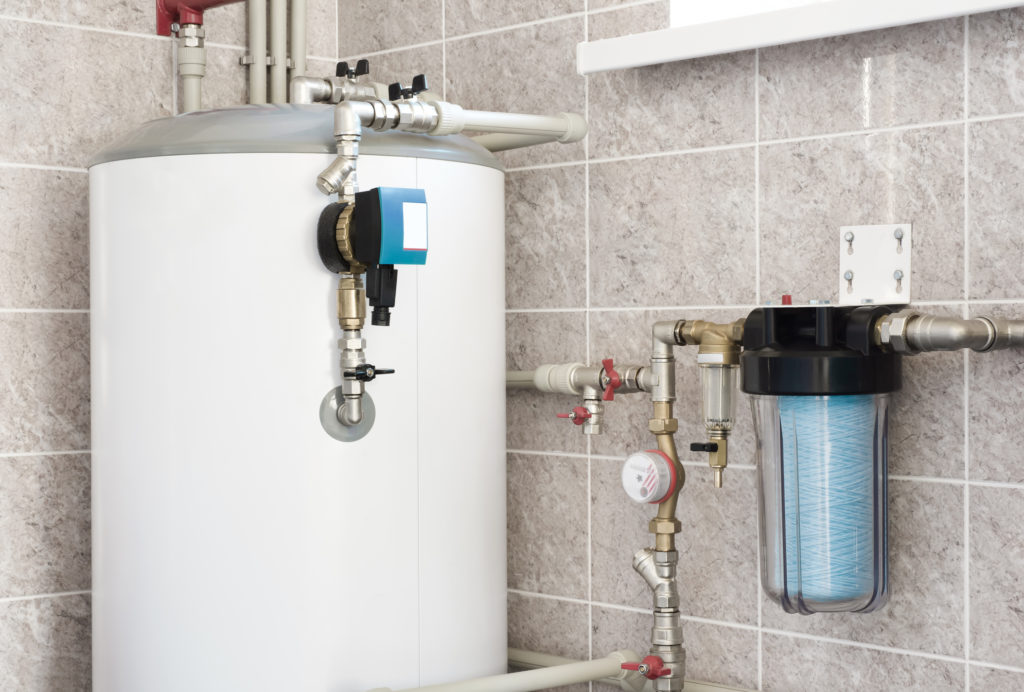Many homes in the UK use hot water tanks – also known as hot water cylinders – to enjoy central heating and hot water if the property has a central heating system, open vent boiler, or heat pump. Although they are quite prevalent, they are often overlooked as background appliances. This can lead to serious issues if they stop working, as you’ll struggle to diagnose problems effectively. In this article, we’ll explore how a hot water tank works, the benefits it offers, and more.
The Basics of a Hot Water Tank
A hot water tank is an important component in many UK homes, especially those with conventional or system boilers for central heating. These tanks store and heat water, making it available on demand for bathing, cleaning, and heating without needing an immediate heating element. This utility makes hot water tanks an incredibly popular central heating option for many different types of properties.
Types of Hot Water Tanks
There are two primary types of hot water tanks: vented and unvented. Each type has unique features and use cases:
- Vented Hot Water Tanks: The traditional type, which relies on gravity to move hot water from the tank into the pipes. They require a cold water storage tank, usually placed in the loft, which feeds water down to the cylinder by gravity.
- Unvented Hot Water Tanks: These operate under pressure supplied directly from the mains, offering greater flexibility in placement as they do not require a cold water tank. These systems can provide better water pressure and flow rates throughout the home.
How Does a Hot Water Tank Heat Water?
The heating process in a hot water tank ensures a consistent supply of hot water. Understanding how the tank heats water can help homeowners manage their systems efficiently and make informed decisions regarding maintenance and upgrades.
Direct and Indirect Heating Systems
Hot water tanks primarily use two heating methods: direct and indirect. Each method suits different types of heating systems and household needs.
- Direct Heating Systems: In direct systems, electric heating elements, similar to those in an electric kettle, are submerged in the water within the tank. These elements heat the water directly, controlled by thermostats to maintain a set temperature. This method is independent of home heating systems and is commonly used in homes without central heating.
- Indirect Heating Systems: Most homes with central heating use indirect heating. The system employs a heat exchanger (usually a coil of pipe) running through the tank. Hot water from the boiler circulates through this coil, transferring heat to the water in the tank, which is efficient as it uses energy already expended for home heating.
Integration with Renewable Energy
Besides traditional heating methods, hot water tanks can also integrate with renewable energy sources to enhance efficiency and sustainability:
- Solar Heating: Many tanks are compatible with solar thermal systems, which collect solar energy to heat water stored in the tank. On days with insufficient solar radiation, the system can automatically switch to the boiler or electric elements.
- Heat Pumps: Heat pump systems extract heat from the air or ground, transferring it to the water in the tank. This highly efficient method is particularly suitable for well-insulated homes.
Benefits of Using a Hot Water Tank
Several advantages make hot water tanks a valuable option for UK homes. Let’s look at some of the main benefits:
Constant Supply of Hot Water
Hot water tanks ensure a steady hot water supply, especially useful for households with high water demand during peak times.
Energy Efficiency
Modern hot water tanks are designed for energy efficiency, offering a great way to use less energy at home. A professionally installed tank reduces water heating costs by minimising heat loss through insulation improvements and smarter heating controls.
Compatibility with Renewable Energy Sources
Hot water tanks can integrate with renewable energy sources like solar panels, reducing energy costs and lowering carbon footprint.
Better Water Pressure
Unvented systems, in particular, improve water pressure and flow rates throughout the home, enhancing the performance of showers and taps.
Is a Hot Water Tank Necessary?
The need for a hot water tank largely depends on your household’s water usage and existing heating system. If you have a large family or multiple bathrooms, a hot water tank ensures a constant hot water supply. It’s also ideal for those committed to sustainable energy, as hot water tanks maximise renewable energy systems like solar panels.
Alternatives to Hot Water Tanks
For smaller households or those with lower hot water demand, a combination boiler might be more suitable. These systems heat water on demand directly from the mains, so there’s no need for a tank, though they may struggle to meet high simultaneous demand.
Is a Hot Water Tank Right for You?
Hot water tanks play a significant role in many UK homes, offering a reliable supply of hot water, energy efficiency, and compatibility with renewable energy. Whether to install one depends on your specific needs, but understanding how they work and their benefits is essential. If you’re unsure which option is best, let our experts at West London Gas help. Contact us today to discuss your needs, and we’ll help you find the perfect heating solution.

